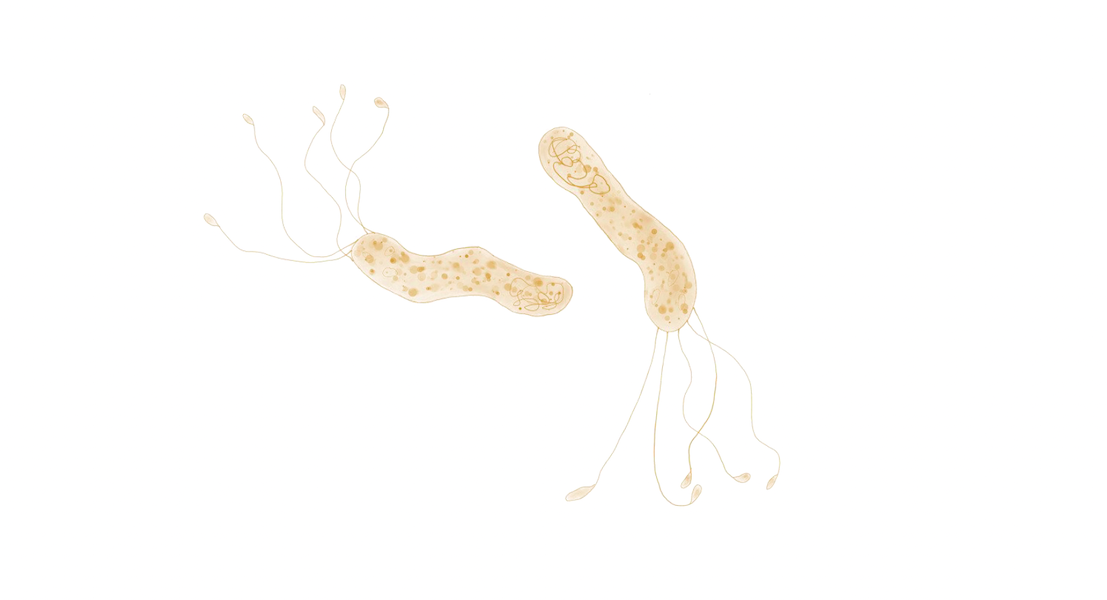PhD defence by Sigri Kløve

Please join us for Sigri Kløve's PhD defence entitled: "Can early-life Helicobacter pylori protect against obesity?" on November 15th at 9:30 am at the Geological Museum Auditorium.
Supervisors:
Main supervisor: Associate professor, Sandra Breum Andersen, Globe Institute, University of Copenhagen, Denmark
Assessment committee:
Chair: Associate professor, Morten Tønsberg Limborg, Globe Institute, University of Copenhagen, Denmark
Professor, Tine Rask Licht, Technical University of Denmark, Denmark
Associate professor, Karen Robinson, University of Nottingham, United Kingdom
Abstract: Establishment of the human microbiome begins at birth and early-life exposure to microbial agents plays a critical role in the development of the host immune system. Hence, perturbations to the microbiome during early-life can have enduring consequences as it increases the risk of developing autoinflammatory diseases and obesity. Obesity has become a global health issue due to its increasing prevalence and association with cardiometabolic comorbidities. In addition to host genetics and dietary habits, the gastrointestinal microbiome has been proposed to contribute to the progress of obesity. Caesarean section, formula feeding and antibiotic exposure in infancy are factors associated with a decrease in host microbiome diversity and the incidence of obesity later in life. Interestingly, the increasing prevalence of obesity is correlated with the decreasing prevalence of Helicobacter pylori in industrialized countries. H. pylori is an ancestral member of the human gastric microbiome. For at least 300,000 years it has been exclusively associated with humans. Transmission happens primarily from mother to child, most probably early in life when the host immune system is still under development. The aim of this thesis was to elucidate if the loss of H. pylori from the human gastric microbiome is contributing to the development of obesity. First, I will introduce the field of Evolutionary Medicine, H. pylori and what is known about its relation to obesity. Following are two enclosed manuscripts. The thesis is finalised with concluding remarks and future perspectives. Manuscript I presents results from two experiments where I tested the effect of early-life H. pylori infection on diet-induced obesity in an experimental mouse model. One experiment focused on the host effects by analysing circulating metabolic and inflammatory markers, whereas the other addresses the interplay between H. pylori and the gastrointestinal microbiome composition. The results demonstrated elevated levels of the hunger- related hormone leptin and the bacterial family Akkermansiaceae already in weaned H. pylori infected mice compared to controls. When mice were subjected to a high fat diet, the H. pylori induced effects were further exacerbated in a sex specific manner, with higher accumulation of visceral white adipose tissue, a further bloom of Akkermansiaceae and elevated concentrations of leptin and the inflammatory cytokines. Manuscript II contains results from a human correlative study, where I screened a collection of serum samples from Danish children and adolescents for antibodies against H. pylori. While no association was found between H. pylori seropositivity and obesity, there was a correlation with the prevalence of hyperglycemia and when seropositivity was combined with body mass index, we found an association with glycated hemoglobin (HbA1c). Together, the results from this thesis contribute to a better understanding of the role H. pylori plays in host metabolism, by demonstrating the effects of an early-life infection in a mouse model complemented with results from a human correlative study.
